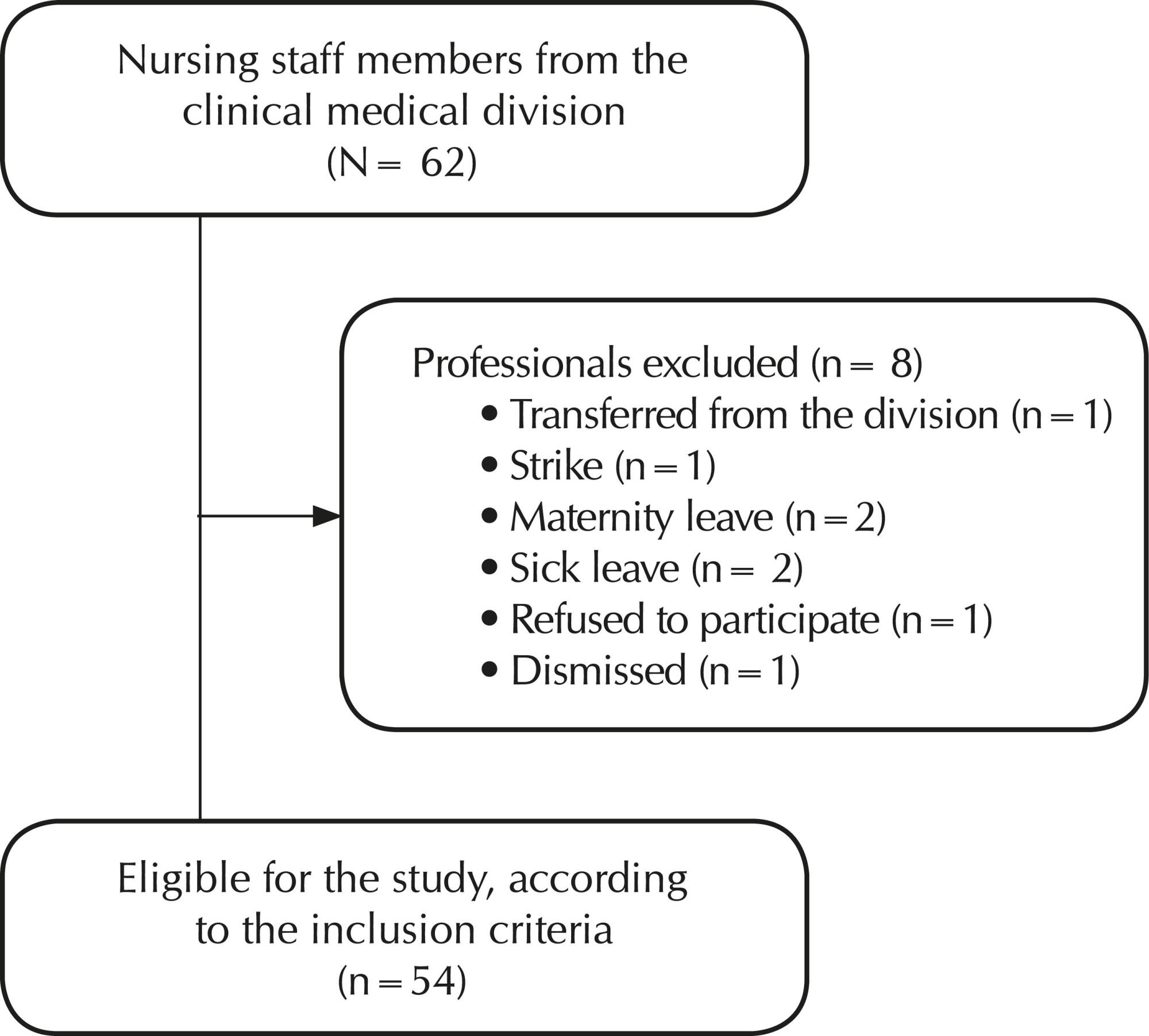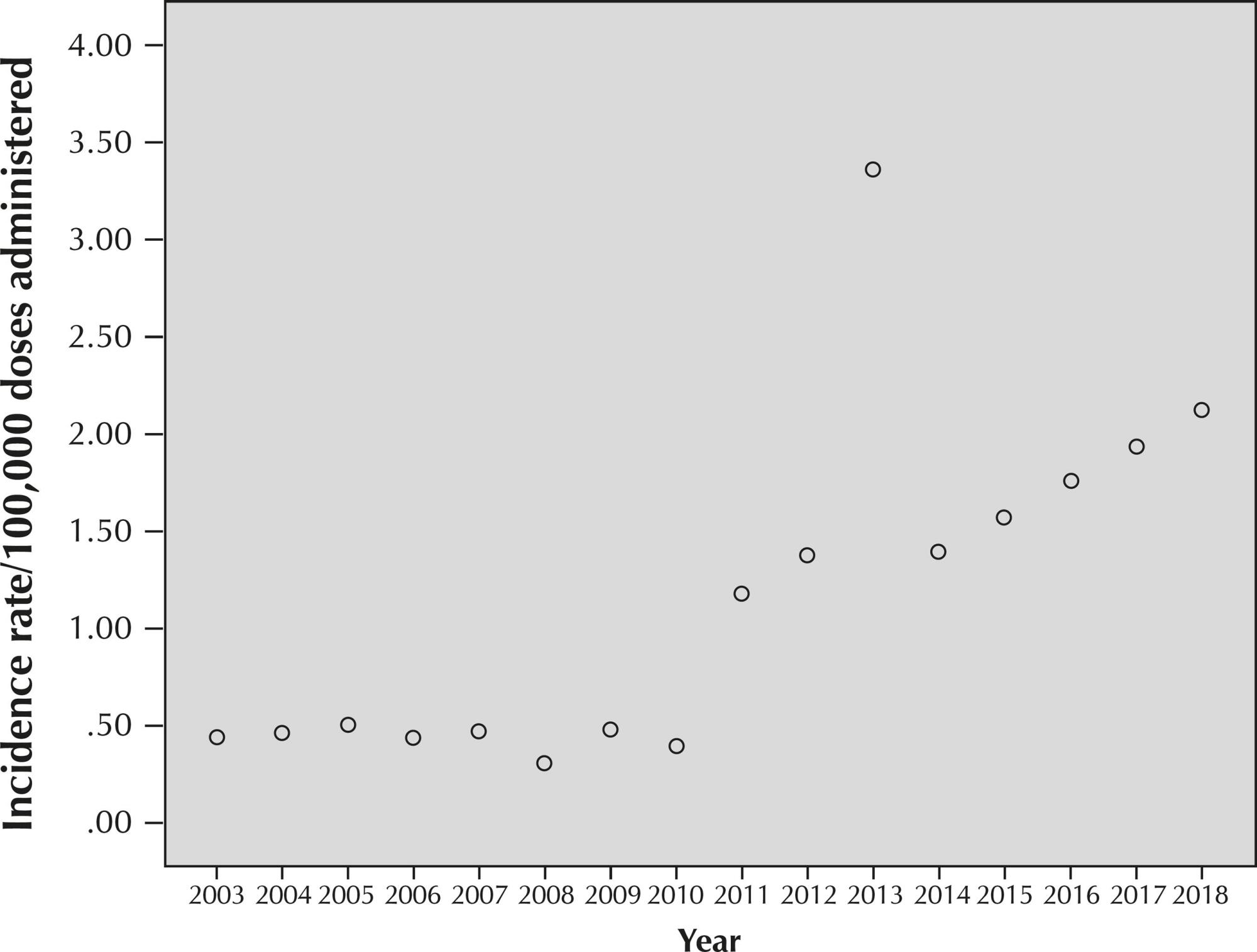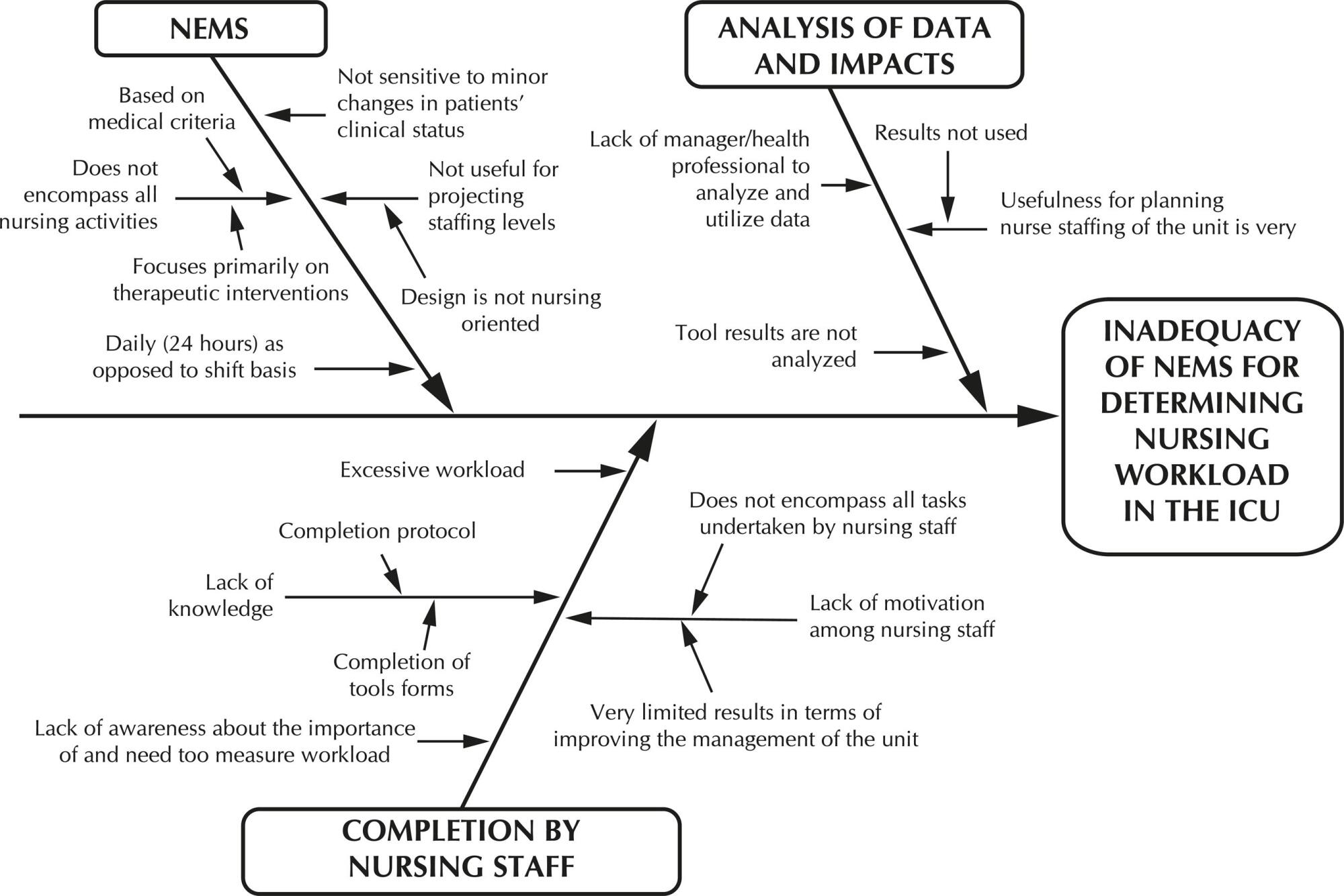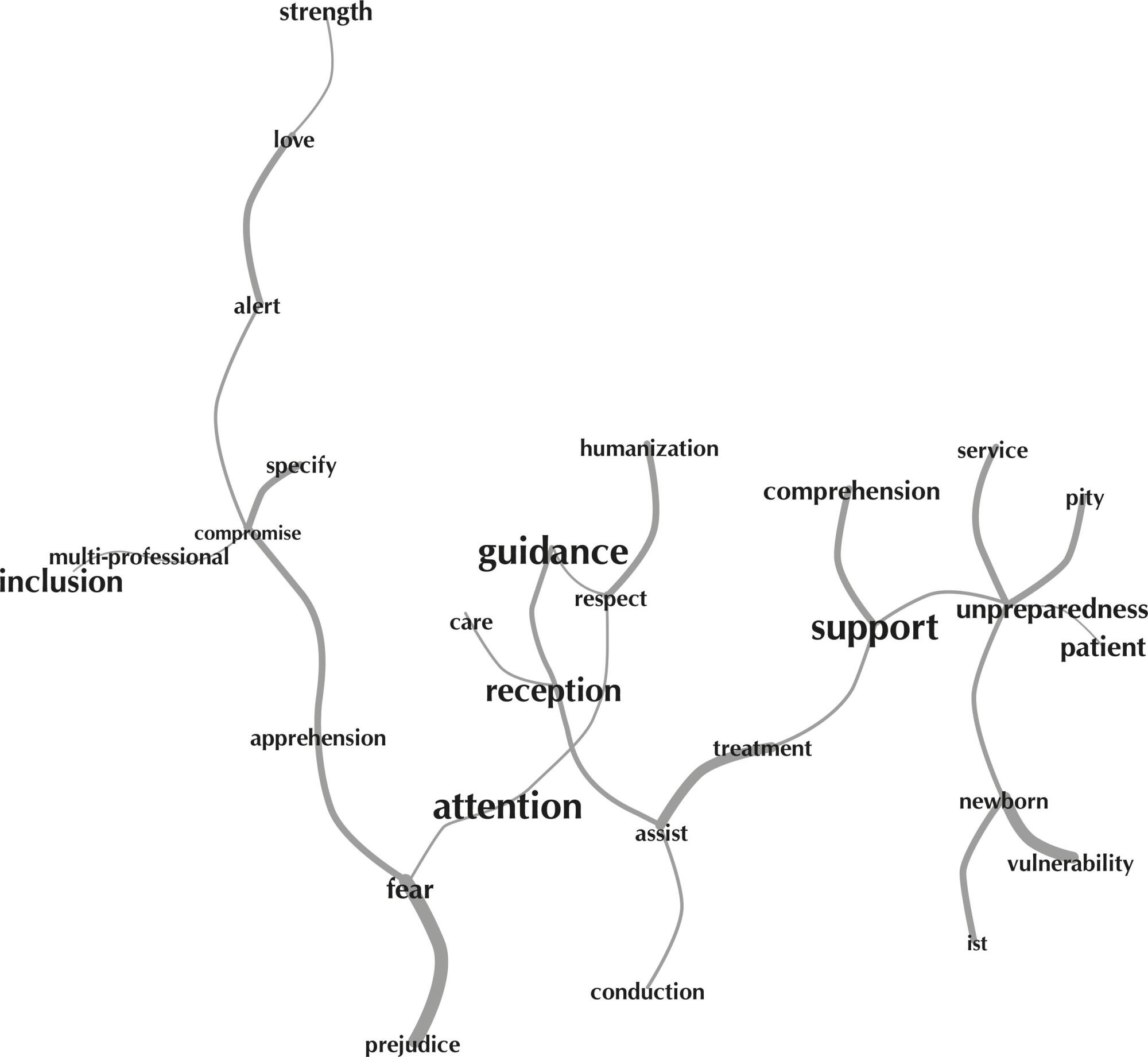-
ORIGINAL ARTICLE12-13-2024
Nurses’ experience regarding patient safety in mobile pre-hospital care
Revista Brasileira de Enfermagem. 2024;77(5):e20230529
Abstract
ORIGINAL ARTICLENurses’ experience regarding patient safety in mobile pre-hospital care
Revista Brasileira de Enfermagem. 2024;77(5):e20230529
DOI 10.1590/0034-7167-2023-0529
Views0See moreABSTRACT
Objectives:
to understand nurses’ experience regarding patient safety in mobile pre-hospital care.
Method:
a qualitative, exploratory and descriptive study, conducted with nurses active in mobile pre-hospital care services. Semi-structured interviews were conducted, audio-graved and submitted to Bardin’s content analysis.
Results:
from four thematic categories established, nurses reported the care and management skills necessary to work in this service. They demonstrated a commitment to ensuring safe care for patients, staff and spectators. They highlighted the actions taken to prevent and mitigate incidents. However, they based their experiences on practice protocols and individual actions, expressing the need to improve knowledge about patient safety.
Final Considerations:
mobile pre-hospital care nurses’ experience in relation to patient safety was limited, suggesting the need for training on the subject, alignment of work processes and implementation of strategies, aiming to guarantee safe care.
-
ORIGINAL ARTICLE12-13-2024
Repercussions of the pandemic on tuberculosis control actions from the perspective of health professionals
Revista Brasileira de Enfermagem. 2024;77(5):e20230477
Abstract
ORIGINAL ARTICLERepercussions of the pandemic on tuberculosis control actions from the perspective of health professionals
Revista Brasileira de Enfermagem. 2024;77(5):e20230477
DOI 10.1590/0034-7167-2023-0477
Views0See moreABSTRACT
Objectives:
to analyze the repercussions of the COVID-19 pandemic on tuberculosis control actions from the perspective of primary health care professionals.
Methods:
this descriptive study with a qualitative approach was conducted from November 2022 to April 2023, using semi-structured interviews with 11 key informant professionals from primary health care units in a Brazilian capital. Data were organized using Atlas.ti 22.0 software and subjected to thematic-categorical content analysis.
Results:
the pandemic scenario caused alterations in the work process, necessitating abrupt adaptations, and led to detrimental impacts on the health of professionals and tuberculosis control actions, which were reduced or discontinued.
Final Considerations:
there was evident unpreparedness and a lack of resources from various governmental levels and health services to handle the public health emergency situation without severe harm to the provision of essential services.
-
Training of Brazilian indigenous nurses: between human rights, valuing diversity and inclusion
Revista Brasileira de Enfermagem. 2024;77(5):e20230430
Abstract
Training of Brazilian indigenous nurses: between human rights, valuing diversity and inclusion
Revista Brasileira de Enfermagem. 2024;77(5):e20230430
DOI 10.1590/0034-7167-2023-0430
Views0See moreABSTRACT
Objectives:
to analyze the possibilities and potential of training indigenous nurses, given the Brazilian Health System (SUS), understanding the relationships between education and health.
Methods:
theoretical-reflective study, based on scientific literature, aligned with the experience, critical thinking of its authors and the Sustainable Development Goals in Brazil.
Results:
this text articulates three axes: Potential for including indigenous students in nursing training; Paths to achieving equity through inclusion and retention policies for indigenous students at different levels; and Implications of this for the SUS and global health.
Final Considerations:
indigenous students, beneficiaries of affirmative actions, face challenges of inclusion and retention in public universities that directly impact their academic training. Added to this are the difficulties identified in basic education, professor training and implementation of permanence policies, with consequences for services and training at other levels.
-
ORIGINAL ARTICLE12-13-2024
Interobserver agreement in Reception and Risk Stratification in Obstetrics implementation
Revista Brasileira de Enfermagem. 2024;77(5):e20230361
Abstract
ORIGINAL ARTICLEInterobserver agreement in Reception and Risk Stratification in Obstetrics implementation
Revista Brasileira de Enfermagem. 2024;77(5):e20230361
DOI 10.1590/0034-7167-2023-0361
Views0See moreABSTRACT
Objectives:
to analyze interobserver agreement in the Reception and Risk Stratification in Obstetrics protocol implementation.
Methods:
a cross-sectional study carried out during Reception and Risk Stratification in Obstetrics implementation, conducted in a tertiary hospital in southern Brazil with 891 participants in January 2020. Descriptive and interobserver agreement analysis was carried out using the Kappa coefficient in the risk stratification assigned by the triage nurse and reviewed by the researcher.
Results:
around half of the calls (55.6%) were stratified as not very urgent (green), followed by urgent (yellow) (31.8%), very urgent (orange) (9.3%), not urgent (blue) (3.4%) and no emerging stratification (red). Agreement analysis of revised stratification found Kappa values of 0.20 (blue), 0.54 (green), 0.77 (yellow) and 0.80 (orange).
Conclusions:
most appointments were non-urgent. The agreement analysis between the revised and assigned risk stratification revealed greater interobserver agreement as the priority level increased.
-
ORIGINAL ARTICLE12-13-2024
Adaptation and implementation of a Nursing care protocol for children in the Amazon Region
Revista Brasileira de Enfermagem. 2024;77(5):e20230245
Abstract
ORIGINAL ARTICLEAdaptation and implementation of a Nursing care protocol for children in the Amazon Region
Revista Brasileira de Enfermagem. 2024;77(5):e20230245
DOI 10.1590/0034-7167-2023-0245
Views0See moreABSTRACT
Objectives:
to describe the process of implementing an adapted protocol for pediatric nursing care in a health unit located in a municipality in the Amazon Region.
Methods:
methodological research conducted in a basic health unit with four family health teams in the state of Rondônia, involving seven nursing professionals. Data collection occurred between October 2020 and April 2022, following the research phases: situational diagnosis, exploratory phase, protocol definition, implementation, and evaluation.
Results:
the outcome was the adaptation and implementation of a nursing care protocol for children.
Final Considerations:
the adaptation and implementation process can be an effective approach to improving care, strengthening nursing as a profession with a solid foundation in scientific and clinical evidence. This facilitates early problem identification and appropriate guidance, leading to better health outcomes for children.
-
ORIGINAL ARTICLE12-13-2024
Nurses’ experiences in caring for people with mental health problems hospitalized due to clinical comorbidities
Revista Brasileira de Enfermagem. 2024;77(5):e20230136
Abstract
ORIGINAL ARTICLENurses’ experiences in caring for people with mental health problems hospitalized due to clinical comorbidities
Revista Brasileira de Enfermagem. 2024;77(5):e20230136
DOI 10.1590/0034-7167-2023-0136
Views0See moreABSTRACT
Objectives:
to understand nurses’ experiences in caring for people with mental health problems hospitalized due to clinical comorbidities in non-psychiatric Inpatient Units.
Methods:
qualitative study, guided by Alfred Schutz’s social phenomenology. Sixteen phenomenological interviews were conducted. The content was analyzed and discussed based on the literature, through the composition of three categories of analysis.
Results:
three categories emerged in the study: Challenges in care faced by nurses; Fragmented care action; and Ideal care. The disarticulation of the clinic was revealed, as described by nurses, showing care as an action far removed from the comprehensiveness of a person. Nurses’ performance is guided predominantly by biomedical reference, disregarding appreciation of subjectivity.
Final Considerations:
it was observed that nurses attribute the responsibility for patient care to factors external to their life-world, when, in fact, these aspects should be components that help them in comprehensive care construction.
-
REVIEW11-29-2024
Assessment of knowledge in oncology about care for transgender people: a scoping review
Revista Brasileira de Enfermagem. 2024;77:e20230532
Abstract
REVIEWAssessment of knowledge in oncology about care for transgender people: a scoping review
Revista Brasileira de Enfermagem. 2024;77:e20230532
DOI 10.1590/0034-7167-2023-0532
Views0ABSTRACT
Objective:
to identify evidence available in the literature on instruments and methodologies used to assess healthcare professionals’ knowledge about cancer care for the transgender population.
Methods:
a scoping review was conducted in seven databases, including studies that answered the question: what is the healthcare professionals’ level of knowledge about cancer care for the transgender population?
Results:
forty-one articles were selected that dealt specifically with healthcare professionals’knowledge in relation to care for the LGBTQIAPN+ population, especially the transgender population. Eighteen studies assessed patients’ perceptions of professionals’knowledge, whereas other studies used their own assessment tools, considering the global context of LGBTQIAPN+ health.
Conclusions:
there is no tested and validated instrument that assesses the knowledge about the transgender population’s oncological health, highlighting the need to construct and validate an instrument focused on this population’s needs.
Keywords:Health Services for Transgender PeopleNeoplasmsOncologyProfessional TrainingTransgender PeopleSee more
-
RESEARCH01-01-2017
Adherence to standard precautions in a teaching hospital
Revista Brasileira de Enfermagem. 2017;70(1):96-103
Abstract
RESEARCHAdherence to standard precautions in a teaching hospital
Revista Brasileira de Enfermagem. 2017;70(1):96-103
DOI 10.1590/0034-7167-2016-0138
Views0ABSTRACT
Objective:
analyze related factors and the level of adherence to standard precautions of nursing professionals from the clinical medical division of a teaching hospital.
Method:
a quantitative, cross-sectional, analytical study was conducted with 54 nursing professionals using the Psychometric Scale of Adherence to Standard Precautions, translated and validated to Brazilian Portuguese.
Results:
the global score of adherence was intermediate (4.41); no statistically significant correlation was observed between adherence and professional category (p=0.404) and length of professional practice (p= 0.612). A correlation was observed between ‘Washes hands after removing disposable gloves’ (p=0.026) and professionals with nursing practice above 10 years.
Conclusion:
adherence to standard precautions by the nursing team was intermediate, with no statistically significant difference in relation to the professional category and length of professional practice.
Keywords:Exposure to Biological AgentsNursing, TeamOccupational RisksPersonal Protective EquipmentUniversal PrecautionsSee more
-
RESEARCH01-01-2017
Analysis of adverse events following immunization caused by immunization errors
Revista Brasileira de Enfermagem. 2017;70(1):87-95
Abstract
RESEARCHAnalysis of adverse events following immunization caused by immunization errors
Revista Brasileira de Enfermagem. 2017;70(1):87-95
DOI 10.1590/0034-7167-2016-0034
Views0See moreABSTRACT
Objective:
to analyze adverse events following immunization (AEFI) caused by immunization error in the state of Paraná, Brazil, from 2003 to 2013.
Method:
this is a descriptive, documental, retrospective, and quantitative research using secondary data from the Adverse Event Following Immunization Information System and the Immunization Program Evaluation System. We included cases confirmed and/or associated with different types of vaccines. For the analysis, we collected frequencies and incidence rates, and used simple linear regression models with Student’s t-test.
Results:
it was observed an AEFI increase due to immunization errors, especially hot subcutaneous abscesses. BCG vaccine had the highest incidence of adverse events and children under one year old were the most affected individuals.
Conclusion:
the current scenario is worrisome because these are preventable AEFI – injuring patients due to bad vaccination practices – that may undermine the population’s confidence, reducing immunization coverage, and the progress in the control of vaccine-preventable diseases.

-
RESEARCH01-01-2017
Nursing practice environment and work satisfaction in critical units
Revista Brasileira de Enfermagem. 2017;70(1):79-86
Abstract
RESEARCHNursing practice environment and work satisfaction in critical units
Revista Brasileira de Enfermagem. 2017;70(1):79-86
DOI 10.1590/0034-7167-2016-0211
Views0See moreABSTRACT
Objective:
to analyze the association between the environment of nursing practices and work satisfaction in Intensive Care Units (ICU).
Method:
a cross-sectional study was performed in eight adult ICUs of a public university hospital between 2012 and 2015. The Nursing Work Index-Revised (NWI-R), in their short forms, and the Index of Work Satisfaction (IWS) were applied to investigate the environment of nursing practices and work satisfaction, respectively.
Results:
a total of 100 (34.84%) nurses and 187 (65.15%) nursing assistants/technicians participated in this study. The environment was favorable for autonomy and relationships and it showed vulnerability for control of practices and organizational support. The IWS score indicated low work satisfaction. “Environment of practices”, “length of work in the ICU” and “willingness to work” were associated with work satisfaction.
Conclusion:
to invest in the environment of practices, in factors that promote willingness to work and length of experience in the ICU increases nursing work satisfaction.
-
RESEARCH01-01-2017
Emergency interventions for air medical services trauma victims
Revista Brasileira de Enfermagem. 2017;70(1):54-60
Abstract
RESEARCHEmergency interventions for air medical services trauma victims
Revista Brasileira de Enfermagem. 2017;70(1):54-60
DOI 10.1590/0034-7167-2016-0311
Views0See moreABSTRACT
Objective:
to analyze emergency interventions for air medical services trauma victims, considering the time at the scene of trauma and the severity of the victims.
Method:
This was a descriptive, correlational and quantitative study, conducted from October of 2014 to December of 2015. Six nurses participated, completing an instrument containing emergency interventions performed in the care of victims after the occurrence of trauma. The sample consisted of 97 treatments.
Results:
Among the 97 for whom care was provided, peripheral venipuncture was performed in 97.94% of the cases; immobilization, including a backboard, was used in 89.70% of cases. The most commonly used medications were dipyrone in 44.33%, and ondansetron in 76.29%. The time on the scene showed significance with the severity of the victims. The Glasgow Coma scores were inversely related to time on the scene.
Conclusion:
Further studies are necessary, focused on care protocols for trauma victims
-
RESEARCH01-01-2017
Evaluation of the hospital accreditation program: face and content validation
Revista Brasileira de Enfermagem. 2017;70(1):47-53
Abstract
RESEARCHEvaluation of the hospital accreditation program: face and content validation
Revista Brasileira de Enfermagem. 2017;70(1):47-53
DOI 10.1590/0034-7167-2016-0184
Views0ABSTRACT
Objective:
to describe the results of face and content validation of the questionnaire entitled Quality Improvement Implementation Survey, and of two complementary scales as part of the adaptation process to the Brazilian language and culture.
Method:
included the following stages: (1) translation and synthesis of translations; (2) consideration by the expert committee; (3) back translation; (4) evaluation of verbal understanding by the target population.
Results:
the questionnaire was translated into Portuguese and its final version included 90 items. In the pre-test, the target population evaluated all items as easy to understand, with the global average of 4.58 (maximum value = 5).
Conclusion:
the questionnaire is currently translated into Portuguese and adapted to the Brazilian context. The adapted version maintained the semantic, idiomatic, conceptual and cultural equivalence, according to the assessment of the expert committee and the information provided by the target population, which confirmed the face and content validity.
Keywords:AccreditationAssurance of Health Care QualityHospital AdministrationOutcome Assessment (Health Care)Validation StudiesSee more -
RESEARCH01-01-2017
Adecuación de escalas para medir cargas de trabajo mediante metodología de calidad
Revista Brasileira de Enfermagem. 2017;70(1):39-46
Abstract
RESEARCHAdecuación de escalas para medir cargas de trabajo mediante metodología de calidad
Revista Brasileira de Enfermagem. 2017;70(1):39-46
DOI 10.1590/0034-7167-2016-0246
Views0RESUMEN
Objetivo:
Determinar cuál de las escalas evaluadas (NEMS y NAS), es más adecuada para Unidades de Cuidados Intensivos aplicando metodología de calidad.
Método:
Tras identificar como oportunidad de mejora la no adecuación de la escala NEMS para determinar cargas de trabajo de enfermería en UCI, se aplica metodología de los ciclos de mejora a dicha escala y a la NAS, como propuesta de mejora, evaluando los criterios: medición de cargas de trabajo al día y por turno, inclusión de todas las actividades enfermeras, y análisis por paciente y unidad.
Resultados:
Escala NEMS no muestra diferencias significativas en el cumplimiento (67%). Comparación NEMS-NAS, todos los criterios excepto el 1º, obtienen mejora significativa. NEMS sólo valora el criterio 1 (64,22%), y NAS todos con un cumplimiento para el 1º, 2º y 4º del 64,74%, y el 3º del 100%.
Conclusión:
La escala NAS es más adecuada para medir cargas de trabajo de enfermería en UCI.
Keywords:Carga de TrabajoControl de CalidadEnfermeríaGestión de la CalidadUnidades de Cuidados IntensivosSee more
-
EDITORIAL01-01-2016
Discoveries of Biological Sciences and their implications for nursing practice
Revista Brasileira de Enfermagem. 2016;69(4):619-620
Abstract
EDITORIALDiscoveries of Biological Sciences and their implications for nursing practice
Revista Brasileira de Enfermagem. 2016;69(4):619-620
DOI 10.1590/0034-7167.2016690401i
Views1For the longest time, the production of knowledge in the field of biological sciences was viewed as the exclusive responsibility and competence of medical professionals. This scenario has changed in light of the worldwide trend of improvements in other health professions, which includes the need to implement the use of evidence-based methodology in nursing practice. […]See more -
EDITORIAL01-01-2016
Descobertas das Ciências Biológicas e as implicações para a prática da Enfermagem
Revista Brasileira de Enfermagem. 2016;69(4):619-620
Abstract
EDITORIALDescobertas das Ciências Biológicas e as implicações para a prática da Enfermagem
Revista Brasileira de Enfermagem. 2016;69(4):619-620
DOI 10.1590/0034-7167.2016690401i
Views0A produção de conhecimento na área das ciências biológicas, durante muito tempo, foi vista como de responsabilidade e competência exclusivamente de profissionais médicos. Esse cenário alterou-se frente à tendência mundial de aperfeiçoamento dos demais profissionais de saúde, incluindo-se a necessidade de se concretizar a utilização da metodologia da prática baseada em evidência na atuação do […]See more -
REVIEW01-01-2016
Effects from acupuncture in treating anxiety: integrative review
Revista Brasileira de Enfermagem. 2016;69(3):602-609
Abstract
REVIEWEffects from acupuncture in treating anxiety: integrative review
Revista Brasileira de Enfermagem. 2016;69(3):602-609
DOI 10.1590/0034-7167.2016690325i
Views0See moreABSTRACT
Objective:
to evaluate the scientific evidence that is available in the literature on the effects of acupuncture for treating anxiety and on the quality of such studies.
Method:
the study is an integrative review of CINAHL, LILACS, PUBMED-PICO, SciELO, and The Cochrane Library between 2001 and 2014. Keywords anxiety, acupuncture therapy, acupuncture, and anxiety disorders were combined among themselves to ensure a wide search of primary studies.
Results:
among 514 articles, 67 were selected to be fully read and 19 were included. Among these, 11 were found to have strong evidence levels. Among the six articles about randomized clinical studies, five were found to be of reasonable quality. Two studies used acupuncturist nurses to perform their interventions. Its results showed positive and statistically significant effects from using acupuncture for treating subjects with anxiety.
Conclusion:
acupuncture seems to be a promising treatment for anxiety; however, there is a need for improving the methodological quality of the research on this field.
-
REVIEW01-01-2016
Palliative care and spirituality: an integrative literature review
Revista Brasileira de Enfermagem. 2016;69(3):591-601
Abstract
REVIEWPalliative care and spirituality: an integrative literature review
Revista Brasileira de Enfermagem. 2016;69(3):591-601
DOI 10.1590/0034-7167.2016690324i
Views0See moreABSTRACT
Objective:
to analyze scientifi c articles published in international online journals about palliative care and spirituality.
Methods:
an integrative literature review with data collected in September 2014 from the LILACS, SCIELO, MEDLINE/PubMed, and IBECS databases.
Results:
thirty-nine publications were identifi ed and their textual analysis facilitated through four thematic approaches: the meaning of spirituality in the context of palliative care; palliative care and spiritual support; spirituality and relief of pain and other symptoms in patients under palliative care; and instruments to evaluate the spiritual dimension of the scope of palliative care.
Conclusion:
this study examined the relevance of the spiritual dimension in the care of patients with palliative care and the need for developing new studies to disseminate knowledge about this topic.
Descriptors:
Palliative Care; Palliative Care at End of Live; Spirituality; Religion; Health.
-
REVIEW01-01-2016
Educational technologies to encourage (self) care in postpartum women
Revista Brasileira de Enfermagem. 2016;69(3):582-590
Abstract
REVIEWEducational technologies to encourage (self) care in postpartum women
Revista Brasileira de Enfermagem. 2016;69(3):582-590
DOI 10.1590/0034-7167.2016690323i
Views0See moreABSTRACT
Objective:
to evaluate national and international literature regarding the use of educational technologies to encourage self care in postpartum women.
Method:
an integrative review of the literature. The articles were collected from the CINAHL, SCOPUS, PubMed, SciELO, LILACS and Cochrane databases; the time period for the articles referred to January/2004 to July/2014; the languages used in the articles were Portuguese, English, Spanish and French; the articles were selected from the following descriptors: postpartum care period, educational technology, nursing and self care. Twenty-seven articles were selected for analysis
Results:
based on the information found, the scales, counseling and home visits were among the most recommended educational technologies.
Conclusion:
the technologies promote communication, but are sometimes dependent on computer and internet access, which hinder their use by low-income women.

-
RESEARCH01-01-2016
Patients with HIV/Aids and ulcer risk: nursing care demands
Revista Brasileira de Enfermagem. 2016;69(3):574-581
Abstract
RESEARCHPatients with HIV/Aids and ulcer risk: nursing care demands
Revista Brasileira de Enfermagem. 2016;69(3):574-581
DOI 10.1590/0034-7167.2016690322i
Views0See moreABSTRACT
Objective:
to analyze the demand for nursing care and the risk of pressure ulcers (PU) of patients with HIV/Aids.
Method:
quantitative survey, carried out from December 2012 to March 2013 in a public hospital of Teresina, state of Piauí, Brazil.
Results:
the sample of 31 patients was predominantly male, mean age 36.6 years, average care demand 49.4%, most showing some risk of developing PU. The variables correlated with PU risk were care demand and clinical outcome (death). Those associated with care demand were age and clinical outcome (death).
Conclusion:
the results showed that patients require moderate nursing care needs and most of them present risk of developing PU.

Search
Search in:
Nuvem de Tags
Aged (144) Atenção Primária à Saúde (239) COVID-19 (104) Cuidados de Enfermagem (269) Educação em Enfermagem (151) Educação em Saúde (139) Enfermagem (930) Estudos de Validação (131) Health Education (144) Idoso (208) Mental Health (149) Nursing (987) Nursing Care (306) Patient Safety (151) Primary Health Care (284) Qualidade de Vida (104) Quality of Life (106) Saúde Mental (145) Segurança do Paciente (150) Validation Studies (108)




